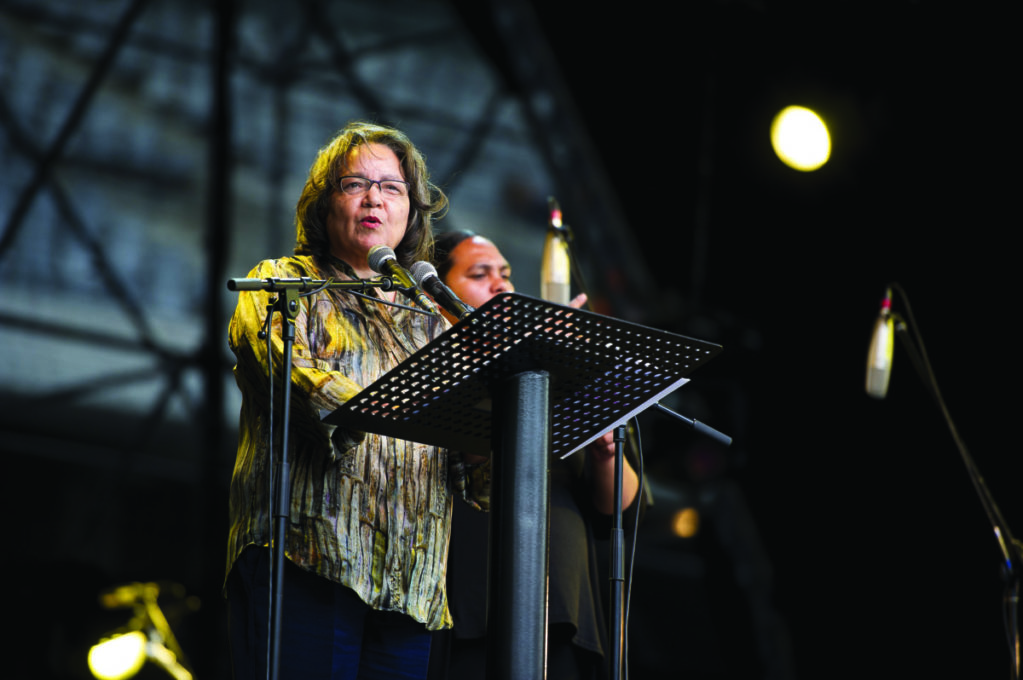Patricia de Lille has spent the vast majority of her almost four decade career in South African politics. The guiding principle of her working life has been to never use her position as a female leader to ask for special treatment.
De Lille famously exposed corruption related to the multibillion-rand arms deal in government in the year 2000, took part in the drafting of South Africa’s progressive constitution in the early 1990s and currently serves as mayor of the country’s second largest city – Cape Town.
“Women are their own worst enemies. I don’t believe in this quota stuff and asking for special dispensations just because of your gender. In politics you have to learn to play by the rules, then you assume power and once you are in, you start changing the rules,” she says. De Lille was born in Beaufort West, a small town located approximately an hour’s drive from Cape Town. Dreams of studying law were shelved after a teenage De Lille fell pregnant and she entered the workforce at a paint factory located outside her hometown. The trade union movement underway on the factory floor became an outlet of political expression and de Lille worked her way up from being a shop steward to becoming the regional secretary of the South African Chemical Workers Union.
“During this time, I embarked on a program to get more women leaders within our trade union, starting out from the shop steward position. I wanted to find out why women don’t put themselves up for elections. Everyone knows men vote for men but what I realized is that the women vote for the men as well…The first thing I had to make women realize is that we don’t need to ask for permission to take on leadership positions.”
De Lille moved on from the trade unions to join the Pan Africanist Movement in 1989 before heading up the group responsible for the constitutional negotiations ahead of South Africa’s first democratic elections in 1994. She went on to join Parliament in various portfolios before founding the Independent Democratic Party in 2003 (which later merged with the Democratic Alliance in 2010).
“I set myself the target of becoming the first woman to establish a political party, contest the elections and win seats in Parliament. I did that and I hope I have opened the road for other women in the future,” she says.
De Lille’s current role of leading development in the City of Cape Town comes with challenges largely as a result of the apartheid era’s spatial planning where suburbs populated by black people were built far from the business hubs of the city – resulting in a long and expensive commute for their residents.
Cape Town’s population has expanded by 30% in the past 10 years and current data estimates residents will grow by 100,000 each year for the foreseeable future.
The swell of populace coupled with divisive city planning is placing considerable strain on existing infrastructure and this will be one of De Lille’s major tasks as she moves into her fifth year of mayoral office.
Further challenges include breaking down the common misconception that Cape Town is all about style and little substance.
“We are not just a tourist destination. We are open for business and we want the world to invest here with us,” she says.
On her leadership style, De Lille says that a career in politics is dependent on the ability to empathize, and humility – admittedly both female-biased characteristics although De Lille refuses to play the gender game when it comes to her value system.
“I have always looked up to principles and values which resonate with me. They are completely gender neutral.”
De Lille is fiercely nationalistic but also admits that the South Africa has lost its way through the 20-year transition period from the post-apartheid regime to the democratic state.
“I hope we get the leadership we deserve,” she says.
De Lille lives with her husband and children, who she credits for giving her the support she needed to pursue her political career.
“I remember someone asking my little boy many years ago whether he minded the fact that his mommy is away from home so much. He said he didn’t mind sharing his mom with the country.”
Her spare time is minimal but any weekends she has off are spent on the golf course with family and friends, as well as listening to jazz and R&B music.
